Germany Summons Tehran’s Envoy Over Execution Of Protester
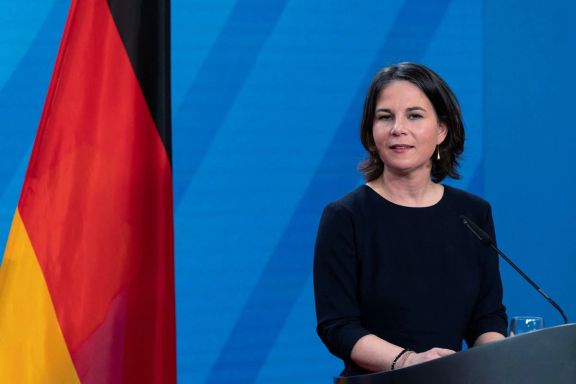
Germany summoned Iran’s ambassador Thursday after the Islamic Republic executed the first Iranian arrested during the current wave of antigovernment protests.

Germany summoned Iran’s ambassador Thursday after the Islamic Republic executed the first Iranian arrested during the current wave of antigovernment protests.
A diplomatic source broke the news but did not provide any details about what transpired. Earlier on Thursday, the Islamic Republic hanged Mohsen Shekari, a young protester sentenced to death in a sham trial for injuring a regime supporter and closing off a street in the capital Tehran. The revolutionary court had accused him of Moharebeh, an Islamic-Arabic term meaning ‘fighting against God” which carries the death sentence.
The execution, widely seen as a measure to intimidate the protesters, has drawn international condemnation with EU countries vowing further coordinated action against the clerical regime.
German Foreign Minister Annalena Baerbock described the Iranian regime's contempt for humanity as “boundless," saying that Shekari was “tried and executed in a perfidious summary trial because he disagreed with the regime. But the threat of execution will not stifle people's desire for freedom.”
Moreover, Vice-President of the German Parliament Katrin Göring-Eckardt tweeted that the execution “reacts with all (un)imaginable brutality to protests."
Since the beginning of the unrest, Berlin has summoned Tehran’s ambassador several times over the heavy-handed crackdown on the popular protests.
So far, around 500 civilians have been killed by security forces and at least 18,000 arrested. While many have been released, around 1,500 face criminal charges, and at least 80 detainees face the death sentence.

The prospect of long-term protests are beginning to emerge in the Iranian media, with some arguing that there is no bright prospect for an end to the crisis.
Protesters’ demands have gone beyond partial reforms, and they just want an end to the Islamic Republic’s clerical, authoritarian rule. There are no constitutional or institutional mechanisms to resolve the conflict.
The first execution of a protester on Thursday also signalled that the regime is not looking for any compromise and has decided to amplify violence to subdue the people.
Meanwhile, political scientist Ahmad Banijamali told Khabar Online that "Institutionalized denial of the problem is the most important obstacle for ending the ongoing crisis in the Iranian society."
He said, "the protests have led to an impasse and there is no bright prospect for the future. In the absence of civil institutions such as trade unions and political parties, strategic mistakes in the analysis of the situation by the people and the government can lend a new momentum to the crisis." He also pointed out that it is dangerous that elements who are not part of the political structure can determine the direction of events.
Banijamali added: "Political systems need to have very important tools that can take them out of a crisis: Institutions to end disputes and begin a move toward a compromise, such as powerful social institutions such as political parties, trade unions, guilds, and civil institutions."
He stressed that the Islamic Republic has eliminated all these mediation mechanisms and as a result, the government faces a shapeless mass that lacks any institution. So, even if it is really interested to negotiate, it does not know who it needs to turn to for facilitating the process."
Banijamali further explained that the powerhouse of the Islamic Republic has traditionally been a chaotic system marked by anarchy. “This is a non-functional system in which status groups, pressure groups and wealthy entities hold a piece of the cake. At the same time, creation of unnecessary institutions has increased the system's inefficiency." He added that conflict of interests between different parts of the system has made decision-making impossible, particularly over significant matters."
Banijamali added that "in this situation, it is not clear who is going to put an end to the dispute as the opposition has always been in an antagonistic conflict with the system, political forces such as reformists and moderates have been discredited by radicals in the system and the society no longer accepts them as its own voice. It is a scary situation in which the institutions that should have been at the top and bottom of the society are absent and radical elements are there to lend momentum to the crises."
This week news emerged that the Fajr Film Festival which is usually held to mark the anniversary of the 1979 Islamic Revolution in mid-February, might not take place, signaling that the ongoing uprising is not likely to end in the next three months.
Reza Dorostkar, the deputy director of the Iranian Film Critics Association said in an interview that "Under the current circumstances, the Fajr Film Festival should not be held this year."
Like some other Iranian film industry figures, film critics have said in a statement that in view of "bitter and unpleasant events of recent months," they prefer not to take part in this year's festival while suggesting that the festival should not be held at all this February.
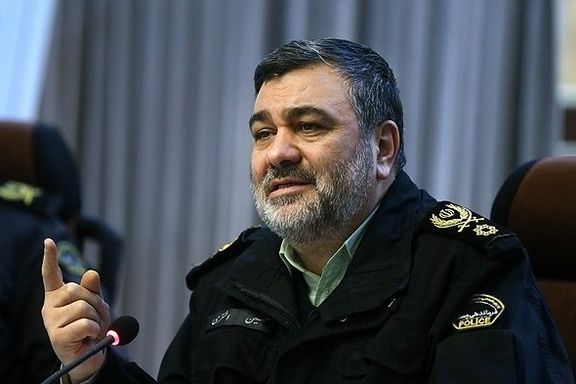
Despite the regime killing about 500 protesters and hanging one, Iran’s police chief threatened the people with more "decisive" response in the coming days.
Commander-in-chief of Law Enforcement Force of Islamic Republic Hossein Ashtari claimed Thursday that the police have shown "restraint" towards the protesters and will deal with them "decisively" from now on.
Describing the protesters as "seditionists," he said that "for more than 70 days, the police have been a powerful presence” against the protesters.
The Islamic Republic authorities have kept threatening protesters with more violent confrontation with little effect on the determination of protesters, with fresh nationwide protests on Wednesday and three days of strikes.
On Thursday, people held gatherings to mourn the 40th day after the death of the death of several protesters in different parts of the country. Holding mourning ceremonies on specific days after someone’s death has traditional cultural significance, therefore the more the regime kills people to muffle the protests, people tend to take to streets more for mourning ceremonies and the vicious circle continue.
People in several neighborhoods of the capital Tehran held protest rallies Thursday night after the first execution of a protester. People held rallies chanting slogans vowing to avenge Mohsen Shekari’s “legal killing”, as many Iranians said on social media.
Shekari’s hanging after a hasty and unfair trial has sparked deep anger among Iranians, who believe his killing was meant to instill fear among the people, and world leaders who describe the act as the acme of atrocity and a nadir of humanity.
Announcing a new package of punitive measures against the regime, European countries urged the Iranian officials to refrain from applying the death penalty and carrying out any future executions, and to pursue a consistent policy towards the abolition of the death penalty altogether. “We call on the Iranian authorities to refrain from the unacceptable practice of using forced and publicized confessions as a basis for ascertaining the facts of alleged crimes. It is imperative for the Iranian authorities to uphold the accused individuals’ due process rights and ensure that those who are under any form of detention or imprisonment are not subject to any form of mistreatment,” the European Union said in a statement.
White House National Security Advisor Jake Sullivan echoed remarks by many other politicians, saying, “The unjust and cruel execution of Mohsen Shekari is a cynical attempt to intimidate the brave Iranian people... We will hold the Iranian regime accountable for the brutal violence it’s committing against its own people.”
Nationwide protests that erupted after the death of 22-year-old Kurdish Iranian woman Mahsa Amini on September 16 represent one of the biggest challenges to the Islamic Republic since its establishment in 1979. So far, around 500 civilians – including over 60 children -- have been killed by security forces and at least 18,000 arrested. While many have been released, around 1,500 face criminal charges, and at least 80 detainees face the death sentence.
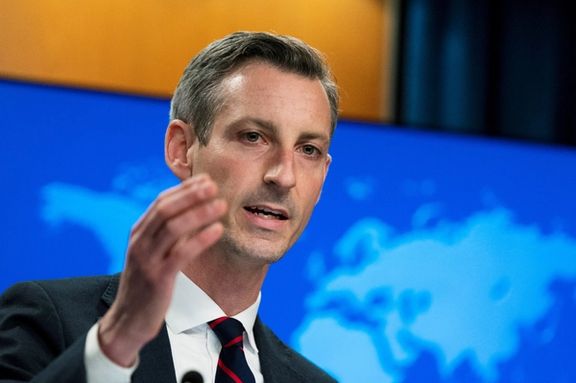
US State Department has denounced the execution of Mohsen Shekari, by the Iranian regime, saying these “draconian” tactics are meant to intimidate people.
State Department Spokesman Ned Price said Thursday the execution of the 23-year-old Iranian “represents a grim escalation in the regime’s attempt to suppress dissent and quash these protests.”
Price also expressed condolences to Shekari’s loved ones, saying Washington mourns his death.
Elsewhere in his remarks, he said the regime has “rounded up” and detained thousands of people for their involvement in the protests while many now face “harsh sentences, including the death penalty, in sham trials that lack any due process.”
The US denounces these draconian sentences and the denial of due process to the accused in the strongest terms, he underlined. Similar messages were tweeted by Secretary of State Antony Blinken and US National Security Advisor Jake Sullivan.
“Unfortunately, this is just the latest tactic in the Iranian regime’s ongoing, brutal crackdown on peaceful protestors. These sentences are meant to intimidate people and suppress dissent, and they simply underscore that Iran's leadership fears its own people and fears the truth,” stressed Price.
Iran executed Mohsen Shekari Thursday, the first detained protester to be killed on “legal” basis. He was convicted of injuring a security guard and closing off a street in the capital Tehran.
Price warned the Iranian regime, “The United States continues to coordinate with allies and partners to confront Iran’s human rights abuses, both in public and in private,” expressed the US spokesman.
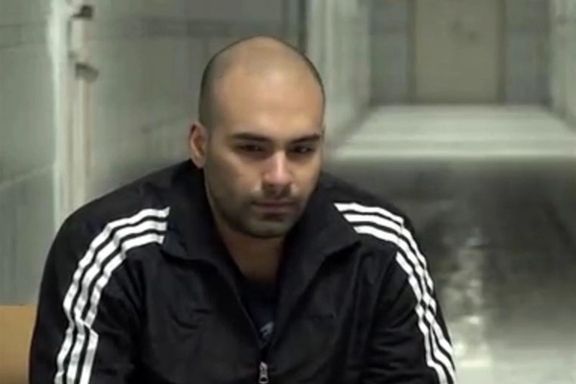
After the Islamic Republic started executing protesters on Thursday, global condemnations and calls for action began to pour in from all over the globe.
France's foreign ministry spokesperson said that the European Union is set to approve new sanctions targeting Tehran over human rights abuses in its crackdown on protesters in the country as well as supplying Russia with weapons to be used in the invasion of Ukraine.
Condemning the execution in the “strongest terms,” Anne-Claire Legendre told reporters that “This execution comes on top of other serious and unacceptable violations.”
She added that foreign ministers would discuss new designations on individuals and entities involved in the crackdown and entities exporting drones to Russia. The EU has already imposed two rounds of sanctions since October in the form of asset freezes and travel bans.
Earlier on Thursday, the Islamic Republic hanged Mohsen Shekari, a young protester convicted of injuring a security guard with a knife and closing off a street in the capital Tehran. Nationwide protests that erupted after the death of 22-year-old Kurdish Iranian woman Mahsa Amini on September 16 represent one of the biggest challenges to the Islamic Republic since its establishment in 1979. So far, around 500 civilians have been killed by security forces and at least 18,000 arrested. While many have been released, around 1,500 face criminal charges, and at least 80 detainees face the death sentence.
State Department Spokesperson Ned Price described the execution as "a grim escalation in the regime’s attempt to suppress dissent and quash these protests.” Expressing condolences to his loved ones, he denounced the “draconian sentences and the denial of due process to the accused in the strongest terms.”
Condemning the execution, German Foreign Minister Annalena Baerbock described the Iranian regime's contempt for humanity as “boundless," saying that Shekari was “tried and executed in a perfidious summary trial because he disagreed with the regime. But the threat of execution will not stifle people's desire for freedom.”
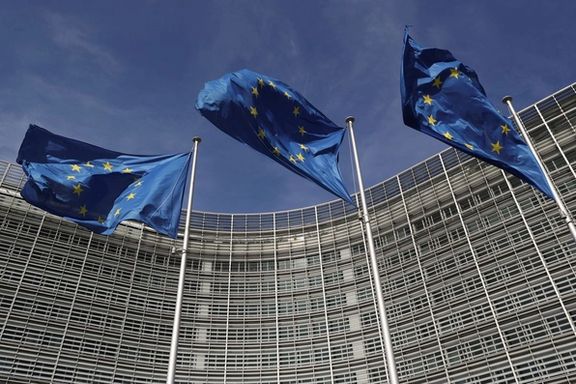
Vice-President of the German Parliament Katrin Göring-Eckardt tweeted, "Mohsen Shekari was only 23. The Iranian regime executed him for taking to the streets for a free Iran. It reacts with all (un)imaginable brutality to protests. The death penalty is contrary to human rights, everywhere."
UK Foreign Secretary James Cleverly also expressed outrage, and called on the world not to “turn a blind eye to the abhorrent violence committed by the Iranian regime against its own people.”
Norway’s Foreign Minister Anniken Huitfeldt also denounced the execution, and called on the regime to immediately halt executions, and to end the repression of fundamental freedoms.
Javaid Rahman, the United Nations Special Rapporteur on human rights in Iran, also said that he is “absolutely horrified, shocked and outraged by the news,” calling on Iranian authorities to immediately stop the use of death penalty as a weapon against protesters.
Vice-President of the European Parliament Pina Picierno said, “It is the first insane death sentence carried out on a protester in Iran,” and reiterated that the EU will always be “on the side of freedom, on the side of the protesters.”
Former Swedish Foreign Minister Margot Wallström urged the international community to be the voice of Iranians, saying that Sweden and the EU must take action quickly to save others. “The International community needs to speak out loud and clear against this.”
Human rights groups are also condemning the execution. Amnesty International urged the world to make Iranian authorities halt all planned executions and stop using the death penalty as tool of political repression against protesters in their attempt to end the popular uprising. It added that Shekari's execution "[exposed] the inhumanity of Iran's so-called justice system as dozens of others face the same fate".
"The international community must immediately and strongly react to this execution," Mahmood Amiri-Moghaddam, director of the Norway-based group Iran Human Rights, said in a statement, adding, “If Mohsen Shekari's execution is not met with serious consequences for the government, we will face mass execution of protesters.”
Two diplomatic sources told Reuters that the new EU sanctions were expected to be approved and adopted on Monday. According to one of the sources, 21 individuals and one entity would be sanctioned over human rights abuses, while there had been 10 proposals on the drone side.
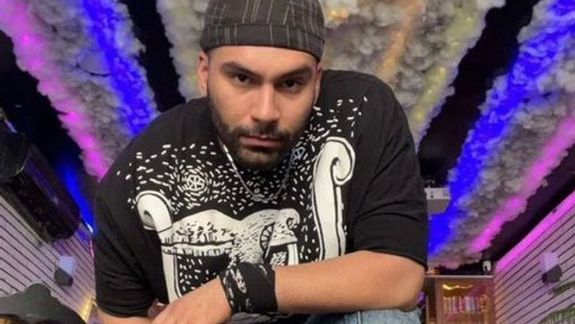
The hanging of a protester after a hasty and unfair trial has sparked deep anger among Iranians who believe his killing was meant to instill fear among the people.
The judiciary announced the execution of Mohsen Shekari, a twenty-three-year-old waiter, on Thursday. By the evening some had taken to the streets, particularly on Sattar Khan Avenue in the west of the capital Tehran where he was arrested, to protest his execution. A video posted on Twitter shows people marching towards the Shekari home in silence.
Many others have taken to social media to express their deep anger of the regime’s sham trial and execution of a young man to instill fear among protesters.
“For every person who is killed there will be thousand rising up,” protesters often chant on the streets. This time they are vowing revenge for Shekari and all those innocently executed or killed on the streets. “Wait for our revenge for Mohsen Shekari!” one of the thousands of tweets posted Thursday with the hashtag Mohsen Shekari said.
Some Iranians called the execution a simple murder by the state.
Reformist pundit Abbas Abdi in Tehran in a tweet argued that legal punishment would only establish justice and placate people if the accused’s trial is held publicly and with due process including the right to appoint an attorney he wishes to represent him. He then added that Shekari’s execution will only exacerbate hatred and animosity among people rather than deterring them from protesting.
Shekari was arrested for allegedly injuring a member of Basij militia of the Revolutionary Guards in the shoulder with a blade during a protest on September 25 after the death in custody of Mahsa Amini in ‘morality police custody. He was also accused of blocking a street to impede the passage security forces’ vehicles.
As in many similar cases, Shekari was tortured into making a self-incriminating “confession” which was aired on the state television during his trial to justify the harsh sentence to be meted out.
Like many others tried on security-related and political charges, Shekari was denied the right to have a lawyer of his choice in his trial on November 1. According to the Judiciary’s statement Thursday, his death sentence was upheld by the Supreme Court soon after.
Before he was hanged nobody knew of his case as authorities intimidated the family into silence, telling them that publicizing the case “would not serve his interests”.
“Prisoners are the Islamic Republic’s hostages … Families abide by whatever the hostage-taker wishes to save the lives of their loved ones. But experience teaches us that silence only worsens the prisoner’s condition because the Islamic Republic is not just targeting a person. They take hostages and issue death and prison sentences to crack down on the whole society,” said rights activist Atena Daemi in a series of tweets Thursday and urged families not to keep a lid on their detained loved ones’ circumstances before it gets too late to do anything.
The Revolutionary Court has sentenced several other protesters to death, including 27-year-old rapper Saman Sayyadi whose family have officially been informed of his imminent execution. Like Shekari, they have been charged with ‘moharebeh’, meaning waging war against God” or “taking up arms against God and the Islamic state”.